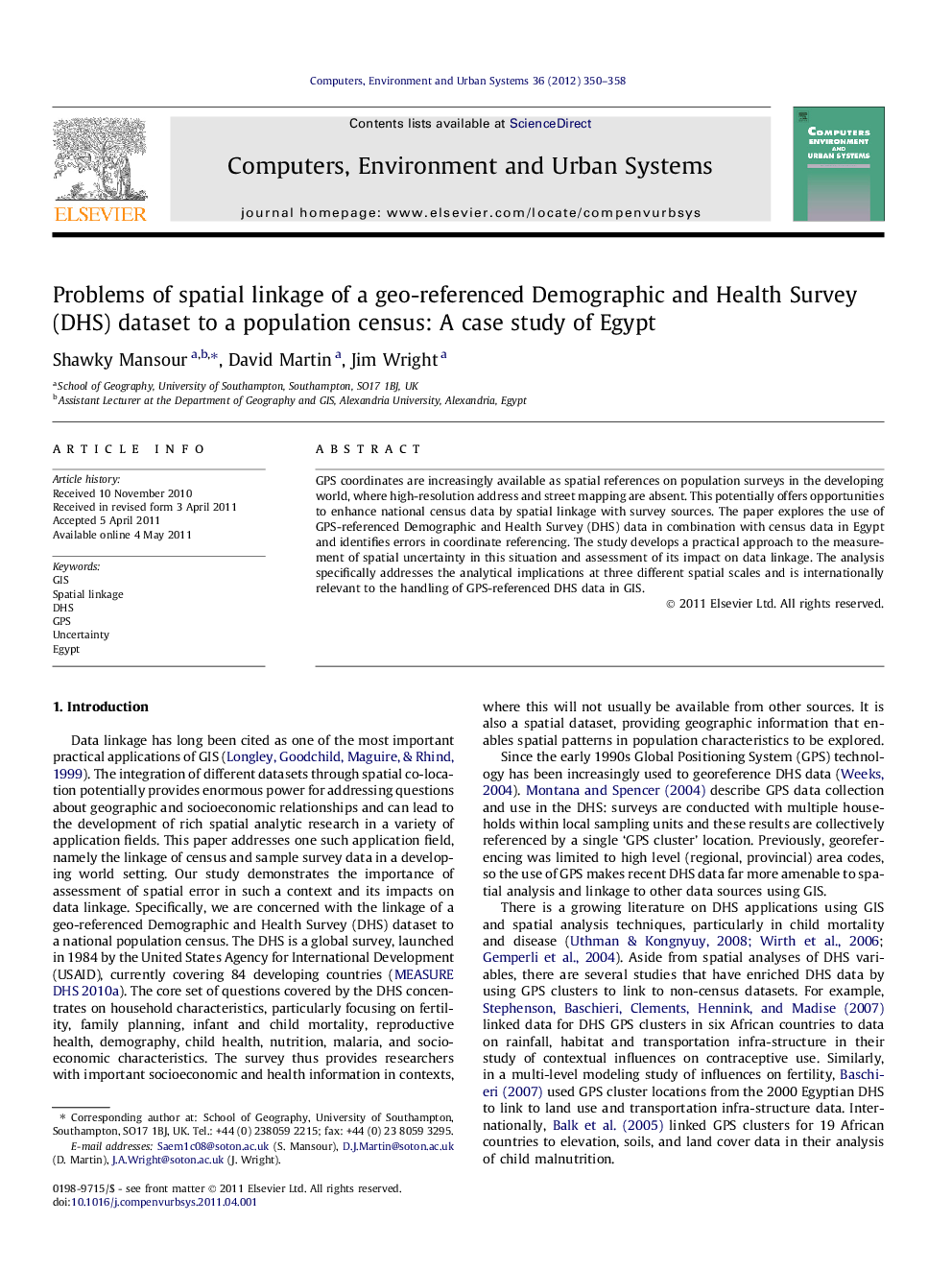| کد مقاله | کد نشریه | سال انتشار | مقاله انگلیسی | نسخه تمام متن |
|---|---|---|---|---|
| 506402 | 864903 | 2012 | 9 صفحه PDF | دانلود رایگان |

GPS coordinates are increasingly available as spatial references on population surveys in the developing world, where high-resolution address and street mapping are absent. This potentially offers opportunities to enhance national census data by spatial linkage with survey sources. The paper explores the use of GPS-referenced Demographic and Health Survey (DHS) data in combination with census data in Egypt and identifies errors in coordinate referencing. The study develops a practical approach to the measurement of spatial uncertainty in this situation and assessment of its impact on data linkage. The analysis specifically addresses the analytical implications at three different spatial scales and is internationally relevant to the handling of GPS-referenced DHS data in GIS.
► GPS coordinates are often added to developing country population surveys.
► Deliberate perturbation of protect confidentiality reduces spatial accuracy.
► Coordinate errors impair GIS linkage of survey data with census areas.
► The impact of such errors on spatial linkage can be identified and modeled.
► Uncertainty when linking areas to GPS coordinates is scale dependant.
Journal: Computers, Environment and Urban Systems - Volume 36, Issue 4, July 2012, Pages 350–358